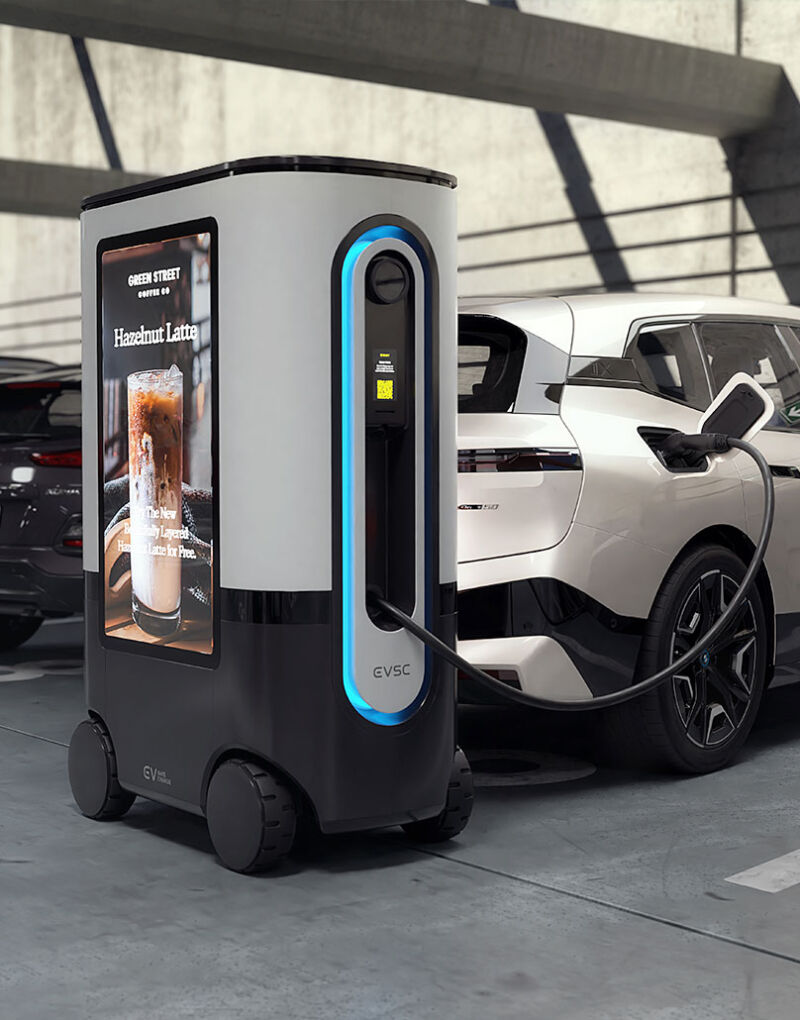Rather than having EVs move to a charging station, Ziggy brings the charging station directly to the vehicles.

As we continue to embrace the electric vehicle (EV) revolution, several key challenges remain, such as increasing battery availability, reducing costs, and improving charging infrastructure. A new mobile EV charger called Ziggy may provide a solution to the latter issue. While installing EV chargers at homes with garages or carports is relatively straightforward, it becomes significantly more complex in multifamily dwellings and commercial parking areas. Permitting issues and lengthy waits for electrical upgrades, especially for Level 3 DC fast chargers, are common obstacles.
Ziggy, developed by EV Charge Safe, flips the traditional concept of EV charging on its head. Instead of drivers having to find a charging station, Ziggy autonomously moves to the vehicle. "The idea originated from customer demand," explained Caradoc Ehrenhalt, the founder and CEO of EV Charge Safe. "Many people were asking us if we had a charger with onboard power, given that we were the first to offer a comprehensive rental solution for both Level 2 and DC fast chargers."
EV Charge Safe rents stationary chargers to car manufacturers for events like car launches or test drives. "Whether it's temporary charging needs or waiting for permits, customers can rent our chargers," Ehrenhalt mentioned. He noted that shopping centers, hotels, airports, and other venues worldwide are expressing interest in Ziggy due to the challenges of installing permanent charging infrastructure. These challenges include high costs, logistical difficulties, and long lead times.
Ziggy Heads to Dallas
Ziggy’s design is essentially a box on wheels, housing a battery pack and power electronics internally, while featuring external display screens for advertisements, similar to static chargers from companies like Volta. Once fully charged—either onsite or offsite—Ziggy can navigate through geofenced areas to reach individual parking spots, providing charging services to locations without existing infrastructure.
"Typically, Ziggy operates within specific environments, such as commercial parking lots—airports, shopping malls, business complexes, hotels, and multi-unit residential buildings. It’s also ideal for urban settings, capable of charging not just cars but also scooters, bicycles, and other mobility devices," Ehrenhalt explained. This summer, Ziggy will undergo its first major U.S. trial at Dallas-Fort Worth International Airport.
The system is highly customizable, starting with Level 2 AC charging, with plans to introduce Level 3 DC charging soon. (I’m still awaiting details on the battery capacity of the DFW Ziggy and will update this article accordingly.)
Of course, concerns about potential vandalism were raised. "Ziggy is quite heavy due to its battery, equipped with cameras and sensors, including GPS," Ehrenhalt stated. "While there’s a risk of vandalism, I prefer to believe in human decency. Plus, damaging a high-voltage EV charger would likely deter repeat offenders." He added, "Ziggy’s cameras monitor activity in real time, and it operates in controlled-access areas with additional surveillance. We don’t expect this to be a significant concern, but it’s definitely something we’ve factored in."
That said, Ziggy won’t be deployed full-time at DFW. Instead, it will serve as part of a demonstration project showcasing various charging technologies across multiple parking lots at the airport from May to August. If you’ll be parking an EV there, you can sign up for the demos online.
https://arstechnica.com/cars/2023/05/dallas-airport-will-demo-this-cute-little-mobile-ev-charging-robot/
Double Edge Blades,Double Edge Razor Blade,Sharp Double Edged Blade,Double Edge Blade Razor
Ningbo Jiangbei Chuangjia Stationery Factory , https://www.cjblade.com